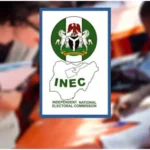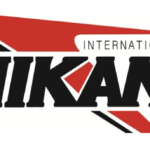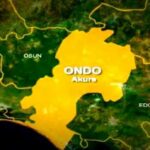Alhaji Ibrahim Aliyu is the chairman, North South Power to which the Shiroro Hydro-Power Plant in Niger State was concessioned. In this interview, he explains the progress made so far and the general challenges facing the power sector in Nigeria.
The privatised power sector is five years old and currently only 40% of Nigeria’s population is connected to the energy grid while power supply difficulties are experienced around 60% of the time, what is the problem?
One, the low degree of connectivity, only 40% of Nigerians are connected to electricity is a historical fact. Until the recent introduction of the private sector into electricity generation and distribution it was the exclusive responsibility of the government of Nigeria to provide electricity to its citizens, no doubt they could have done better.
Since the private sector took over, distribution of electricity has actually accelerated, if you look at the total connection against the total population it would be about 50% as against the 40 % it was five years ago but definitely more needs to be done. Government is investing heavily in rural electricity; the distribution companies are doing their bit. With the population growth in excess of two and half per cent you do not expect dramatic change but I am quite optimistic that by the next decade and half the total connectivity would be in the region of 80%.
The second leg of that question is how much power is available. Much of the breakdown of electricity is as a result of distribution problems, first the DisCos are not satisfied with the rate of tariff, and secondly their connection and collection machines for revenues earned could be better. Thirdly, Nigerians are not the most responsible when it comes to paying for services enjoyed, as a result the distribution lines are not adequately maintained, therefore breakages are quite frequent.
The problem before was that the quantum of electricity supplied was quite limited but since privatization that has changed remarkably; we are getting to a situation where close to 8000MW is generated today, not all of which is taken by the DisCos, for reasons just mentioned, but things are getting better. In some areas like Lagos there is about 80% supply, so there is reason to see that progress is being made.
Where is North South placed in the value chain of electricity supply?
There are three parts to electricity, you generate the electricity, like in our case hydro, or diesel or thermal or natural source e.g. sunlight, wind etc. At North South Power we are concentrating on generation of clean electricity, in order words, where power is generated without carbon dioxide, like you get in thermal power. We currently generate 600MW. Soon we are going to generate an additional 30MW through hydro generation. We also entered into contract to generate another 300MW through solar power so that is generation.
The second part of electricity is, once you generate you need to take it to the consumer i.e. to transmit, we are not into transmission but it is certainly our ambition to eventually invest in that area so that we could have an integrated system – what they call embedded generation. We believe we either have or can mobilise the resources to do so.
The third part to power, the TCN taking the power to the distributor, and the last but certainly not the least, is taking the power from the distributors which is the last end, and connecting to the user.
But it doesn’t mean North South cannot have an embedded power system, which is to generate, supply, transmit and distribute electricity.
With the need for GenCos to rehabilitate turbines and raise the actual generation capacity, what has North South Power, which manages Shiroro Hydro-Power Plant in Niger State, done in this regard?
Shiroro dam is one of the best assets of PHCN. When we went there was at least 450MW available out of a potential of 600MW. Now we have upgraded the turbines and we have put up a maintenance scheme that will ensure that on a regular basis these turbines are maintained to a degree where they don’t fail at all. In fact this year we are committing sums in excess of about N2 billion towards maintaining one of our turbines – No.4. So since we took over we have been able to supply the 600MW capacity installed except in the dry season where for reasons of inadequate water we cannot generate as much, but we in terms of availability we have been able to do that.
Secondly, Gurara Hydro Electric Scheme has now been concessioned to us to run, that is about 30MW, to ensure that once we start we can transmit the power to the grid. By the third quarter of 2019 this addition would have come on stream.
If it is assumed that the total capacity for generation is in the region of about 9000MW, with a 660MW capacity and a potential 30MW, you can do the arithmetic. With a potential 630MW, we should be doing 78% of the total. Hydroelectricity contributes anything between 13-18% of the total power generated in the country, depending on the season, proportionately they generate more when there are problems in the Niger Delta and with the availability of gas but there is in total three operating plants in Nigeria as far as hydro is concerned; Kainji is one with about 700MW installed capacity, Jebba with about 600 MW, Shiroro with about 600MW, we are hoping that Zungeru dam with about 700MW would soon be available.
What of Mambilla?
Mr President has been working very hard, some of these hydro dams have been working in excess of 30 years, Mambilla is one of them. I believe the original scope was just 1600MW but this government upped the scale to make it in excess of 3000 MW but I understand government has put up financing by China with 15% of the total cost down. So, yes Mambilla is a longer project but its implementation has not come on stream so I presume it would come on in another 4 to 5 years from now, but Zungeru, probably by 2020.
How true is it that power generation is not the issue but transmission and distribution?
Yes, it is probably true. If the DisCos can distribute as much as we are generating, power will be much more reliable. I think transmission is no longer the problem, government has been putting a lot of investment on the whole and TCN has been getting funding, some of it at a lower rate of interest. So they have plans to cope, to take the power where it is required. But there are still issues – that they are able to take power in certain areas where there isn’t demand and unable to take power to where it is required.
Yes, I am willing to believe there are problems with DisCos, they did not appreciate the nature of the business adequately before they began, or I imagine they underestimated the problem, or the information on what they were to acquire was not available. Much of the predictions were optimistic from consultant put in place to evaluate, so when they took over the assets they found difference in what is in the books and what is on the ground.
Some of the DisCos say they are operating on losses?
Defining a loss is difficult because whether or not you make money, it has much to do with your capacity to sell the product and to collect the money. I feel many of the DisCos could do more than the effort they’ve been making. They complain about tariff and this is true, tariff could be higher than it is at the moment. But it has to be thought through and calculated.
There are substantial losses from where it is generated to where it is transmitted and through distribution. Now the losses from distribution should be the responsibility of DisCos, they should have a system that minimises losses arising out of distribution, which at the moment are considerable and not acceptable, but its 5 years and 5 years is a lot of time to improve things but I think government should work towards increasing the tariffs.
But most Nigerians don’t want tariffs…
Yes, its unfortunate Nigerians don’t like tariff but they must pay for tariff, you don’t go to a buka woman, eat and don’t pay, many Nigerians think they can consume electricity and not pay for it, many go ahead to pilfer, in the process spoiling the equipment, endangering their and other people’s lives. No, the payment of tariff is not an option that you can escape from. If you use electricity please pay. Is the tariff adequate, no; yes it needs to be improved but first you have to get the efficiency, if you supply electricity to a given area and 25% is lost because of your poor distribution system, it would not be fair to charge your customers that 25% loss as a result of your inefficiency, but eventually I know the tariff may have to be jacked up no matter how slightly, maybe government would not want to do so now because of elections but in all honesty I don’t see any way out.
There are other options. It should not be the responsibility of government to fix the price, especially where you have an emerging market for electricity where a DisCo can buy its power from a source that is cheaper than any other, it is possible then to apply a competitive tariff.
But increased tariff means price of electricity will shoot up…
The tariffs may not necessarily shoot up prices. The minister recently introduced something he called eligible customer, i.e. you are allowed to buy electricity from any generating company. If you are consuming above 2MW you can buy from any of the 8 or 9 Gencos, including the IPPs and so if you overprice people will run away, and the DisCos will run away from any Genco that is charging too much, to the extent that you can supply directly to the client. So there is a limit to what the DisCos can charge, if they charge too much people can go directly to the Gencos.
Government should not determine the price, as we proceed in a privatised environment it should monitor and propose and guard against excesses and ingredients for a competitive pricing are being put in place and would follow in due course.
What are the major challenges facing electricity generating companies like yours?
There are two parts to generation, one you may call green, in which carbon dioxide is not involved, where you use sun, water, wind. The problem here is the ability to raise capital to make the investment to generate. In Nigeria the cheapest way to generate is using gas, unfortunately there are constraints in terms of reliability; political and other reasons sometimes outflank the economic reasons and a little sabotage is not unknown and a little inefficiency, that often is a major constraint.
The second is price relativity. Gencos are poorly paid, for every Naira of power generated, DisCos that use the power pay only 30kobo. Government has however intervened to say that Gencos must be paid about 70-75 kobo for every Naira of power, hence the stability, and the problem like I said is the distribution, this calls for new investment into power generation. This inability to generate enough power is a serious constraint too, but the ability of Gencos to sell directly to consumers should in my view weaken the monopoly that DisCos enjoy, which will encourage a more competitive market and overall increase in power supply.
But that will kill the discos?
I don’t think so. For example to supply a new customer needs new investment in terms of transmission. I know that many of them are trying to eliminate or at least contain it and improve their efficiency and get paid.
Recently Benin DisCo is doing something I call novel, selling electricity from the transformer, most of the transformers are about 500KVA. The idea is to get local distributors who can take charge of these transformers and say you Mr. DisCo you supply this amount and I will pay but because I have a smaller more efficient outfit I make sure everyone pays, and because I am from that area I make sure there are no illegal connections.
In certain places like the major cities like Kano it is difficult to get to some consumers and the staffs are not dedicated enough; sometimes they connive and make illegal connections and collect payments for themselves instead of for their organisations.
Where does NERC and NBET come in?
NERC is the regulator while NBET is market player. What happens is Gencos sell to NBET which in turn sells to DisCos who pay NBET and NBET pays us. While NBET buys N1 electricity from us they pay just 30kobo. Now NERC was set up by law to define and control the electricity industry as a whole, it is the regulator; NBET is the market place.
How soon will Nigerians see 24 hours electricity?
I guess it would take a magician, but I would say within the next five years. An availability factor of say 90% is quite achievable. There is nowhere in the world where you get power 100% always, you look at probably 90, 99% for the very best. For example natural disasters, rain may occur. So what I am saying is 90% availability within the next few years.

 Join Daily Trust WhatsApp Community For Quick Access To News and Happenings Around You.
Join Daily Trust WhatsApp Community For Quick Access To News and Happenings Around You.


